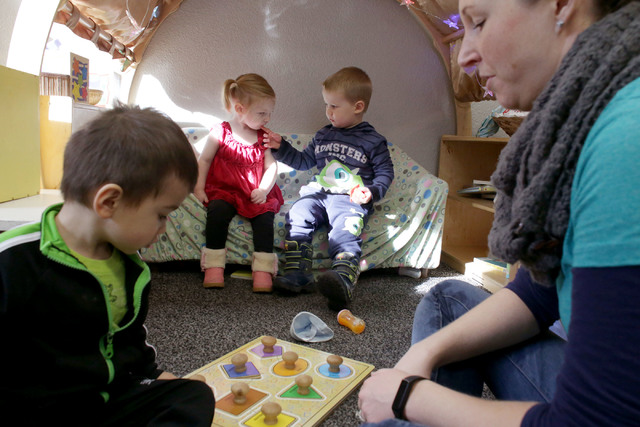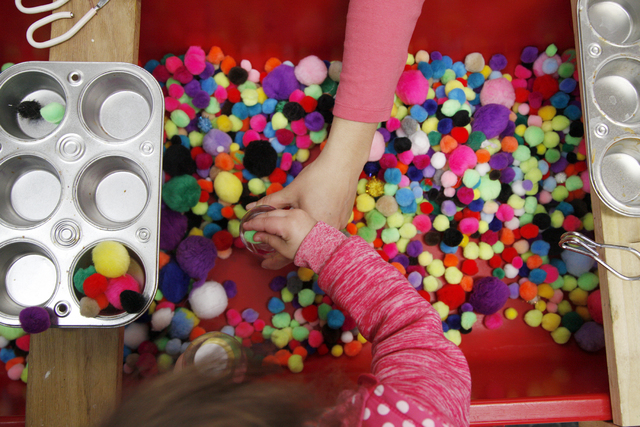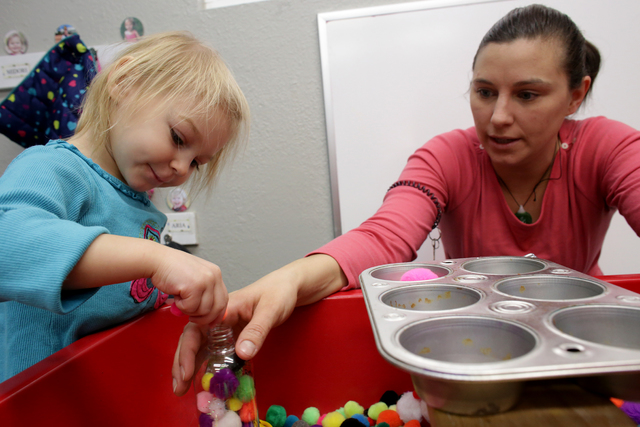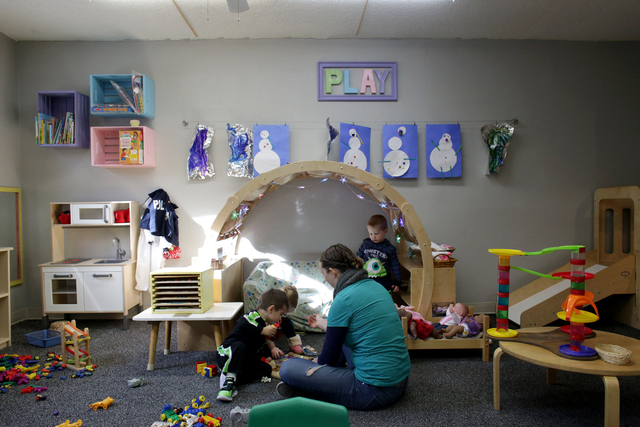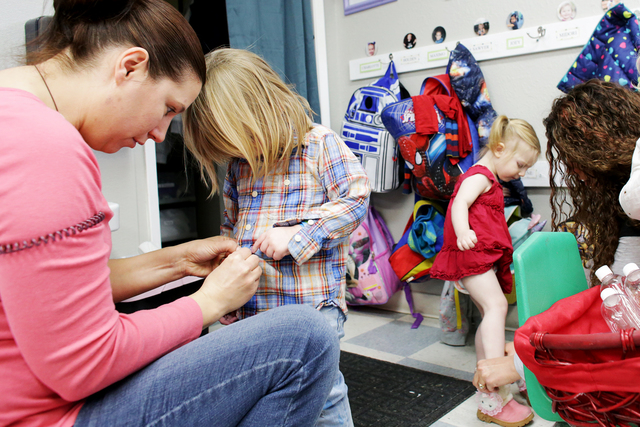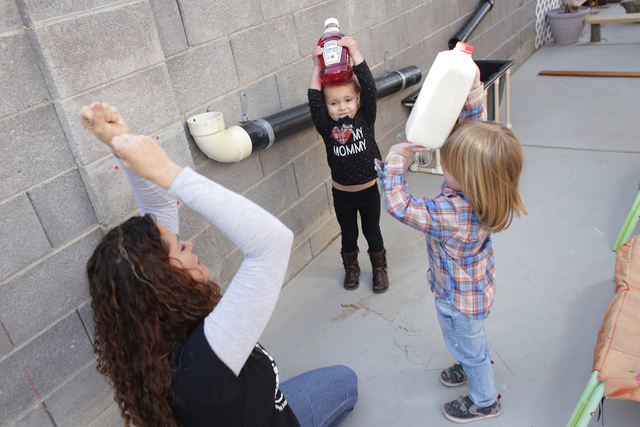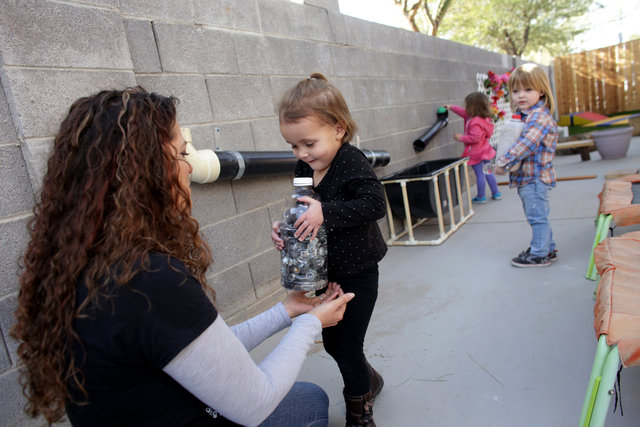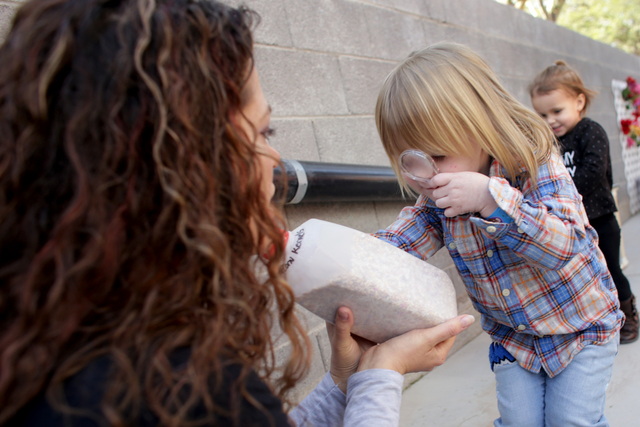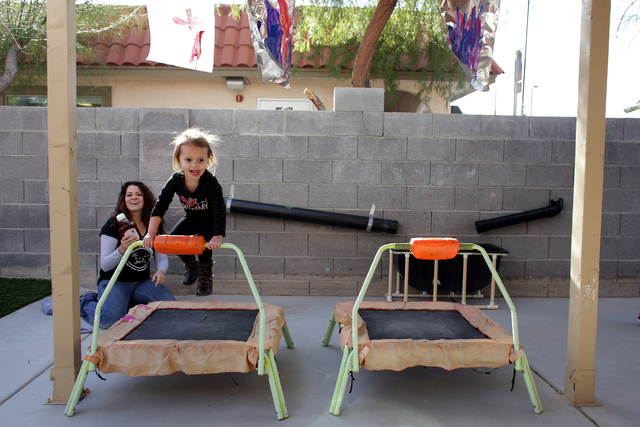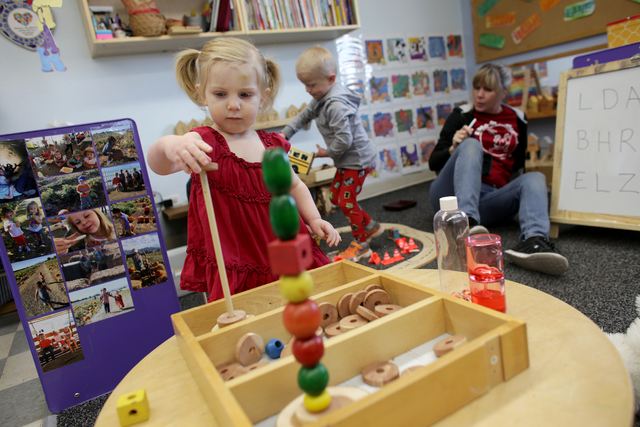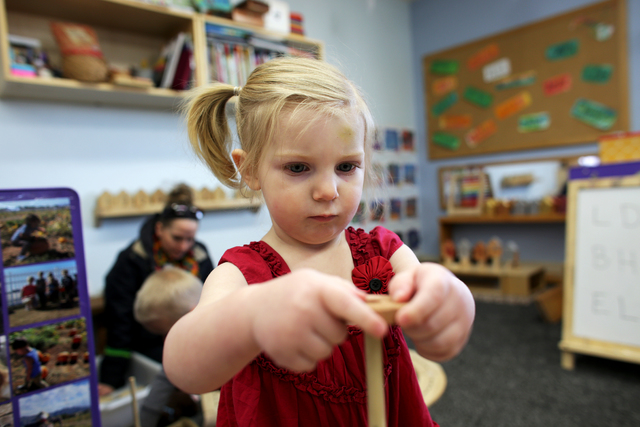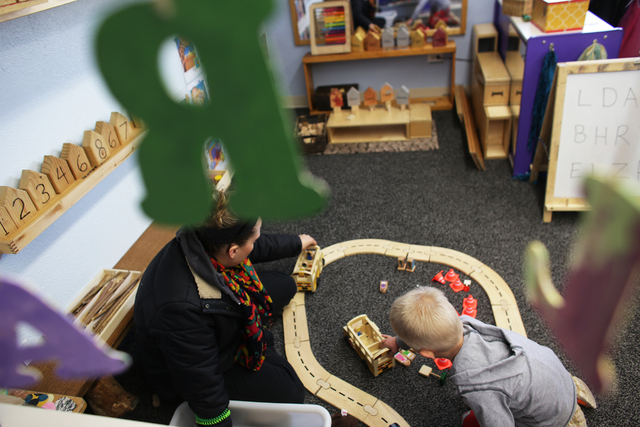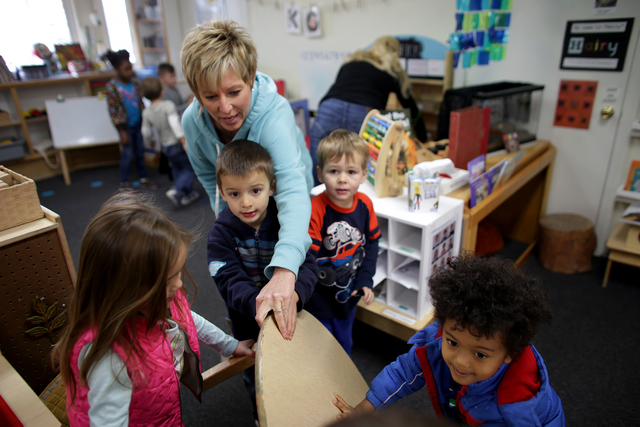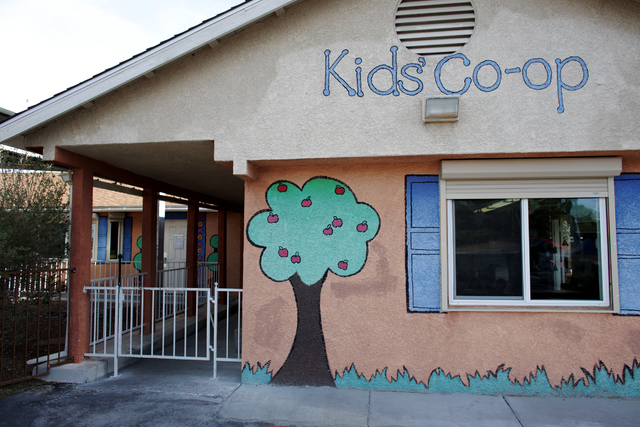Kids Co-op offers parents a unique alternative to preschool in Clark County
Teacher Bonnie Toth has two adults to help her as she juggles a busy classroom of 2-year-olds at the Kids Co-op Preschool.
They’re not teachers — they’re parents completing their required classroom time as part of the preschool’s unique setup.
Through the cooperative model, parents put in work to operate the school. They assist in classrooms a few days a month, serve on various committees tasked with different responsibilities and ultimately keep the program of roughly 65 students running.
In exchange, they receive a lower tuition: $194 per month for two days a week, $285 for three days or $384 for four days.
“When the parents come in in the morning, I check with them really quick and I say, ‘Here are my goals for today,’” Toth said.
On a recent early morning, she’s flanked by two parents assisting with motor-skill activities in both corners of her classroom.
For many Clark County parents — and other parents across the nation — preschool means either long wait lists for free public programs or paying for private ones, which can cost $450 per month or more in the area.
Kids Co-op offers a slightly cheaper alternative.
Tuition and fees cover most of the Kids Co-op’s roughly $275,000 operating budget, said Board of Directors President Angela Blagg. The school typically covers the remaining cost of about $50,000 through fundraising.
Blagg touts the program as a convenient, affordable option.
“We pay a certain amount of tuition and fees, but then what we really contribute is our time,” she said.
But even the small cooperative — tucked away at North Decatur Boulevard and Craig Road and celebrating 35 years this fall — can’t address Clark County’s needs for affordable preschool.
Throughout the Clark County School District, there are typically about 625 general education preschoolers on a waiting list, according to Director of Early Childhood Programs Julie Kasper. That’s despite the fact that the district has 466 early education programs in 213 of 217 elementary buildings.
Roughly 311 of those programs are designated for preschool children with a learning delay or disability, Kasper said.
Funding comes from a variety of sources — some from state programs, such as the Victory or Zoom initiatives designed to help English learners and those in poverty, and others from federal sources such as the Head Start program or Title I funds.
She said there’s absolutely still a need for preschool slots. Like many other educators, she touts the benefits of an early childhood program.
“Our focus is (on) the interactions, the language, the communication, the social-emotional (skills),” she said. “We do math, we do all of those other things, but we do it in a meaningful way for young children.”
Many studies on early childhood education suggest preschool programs provide a variety of benefits. Yet many states, including Nevada, don’t have a costly universal pre-kindergarten program that would adequately serve all students.
One study by the nonprofit HighScope group found that adults at age 40 who had enrolled in a preschool program in the 1960s had higher earnings, were more likely to have a job, and were more likely to have graduated from high school than those who did not attend preschool.
Another 2007 study from the Economic Policy Institute concluded that pre-kindergarten programs help government budgets in the long run for a number of reasons. Children who enroll in them require less special education, and are more likely to have higher incomes — and thus higher taxes — as adults.
A universal pre-kindergarten program in Nevada, estimated to cost $318 million in 2008, would bring in $9.9 billion worth of benefits from 2007 to 2050, according to the study.
Expanding pre-kindergarten is among the district’s priorities for the upcoming legislative session.
Meanwhile, parents who have the time to volunteer can choose programs like Kids Co-op for cheaper alternatives instead.
Elizabeth Becker, a parent who serves as the vice president of operations, ensures that facilities run smoothly. Part of the many parental duties include cleaning the school.
Like other preschool parents, Becker wanted the socialization for her 4-year-old. She also wanted her daughter to be around other authority figures.
“I love being here — that’s one of the things that I love most about this school,” she said. “All of our parents, they can come anytime and they know what’s going on in the classroom, because they work in the classroom.”
Contact Amelia Pak-Harvey at 702-383-4630 or apak-harvey@reviewjournal.com. Follow @AmeliaPakHarvey on Twitter.



